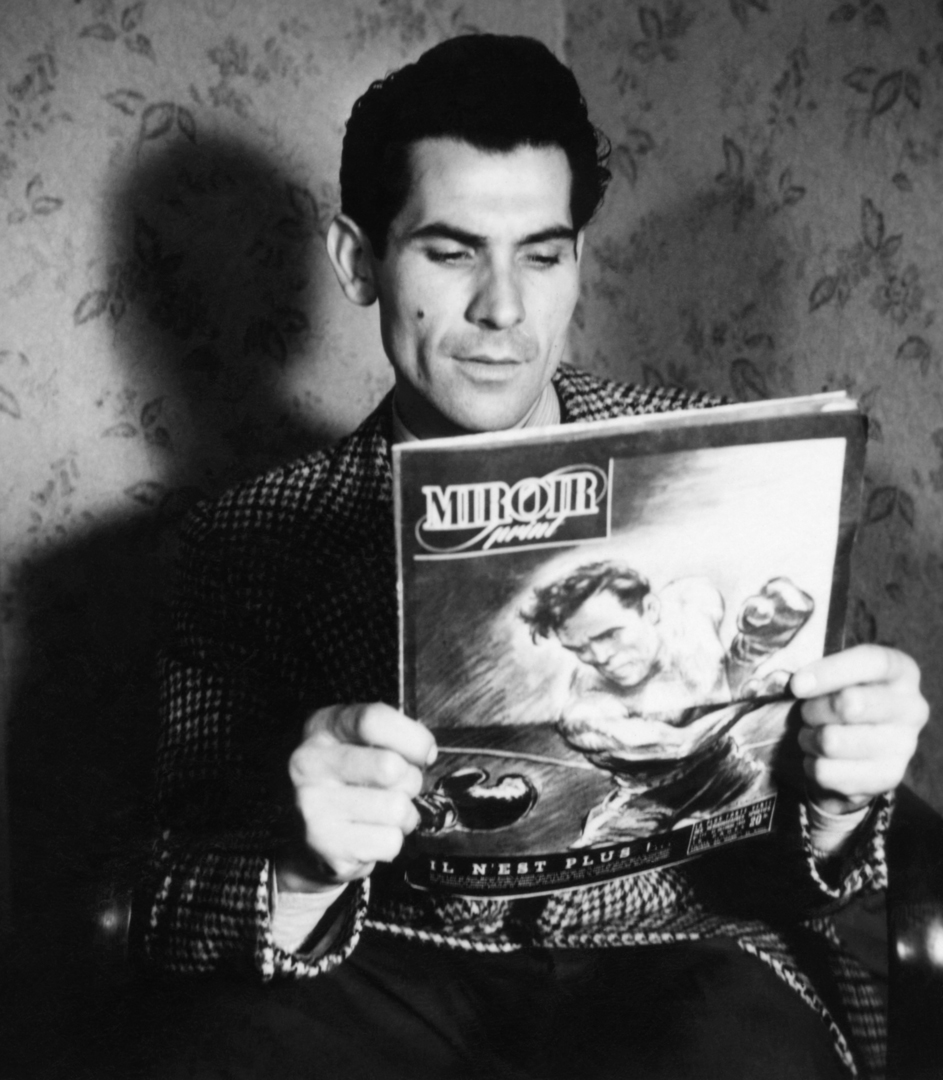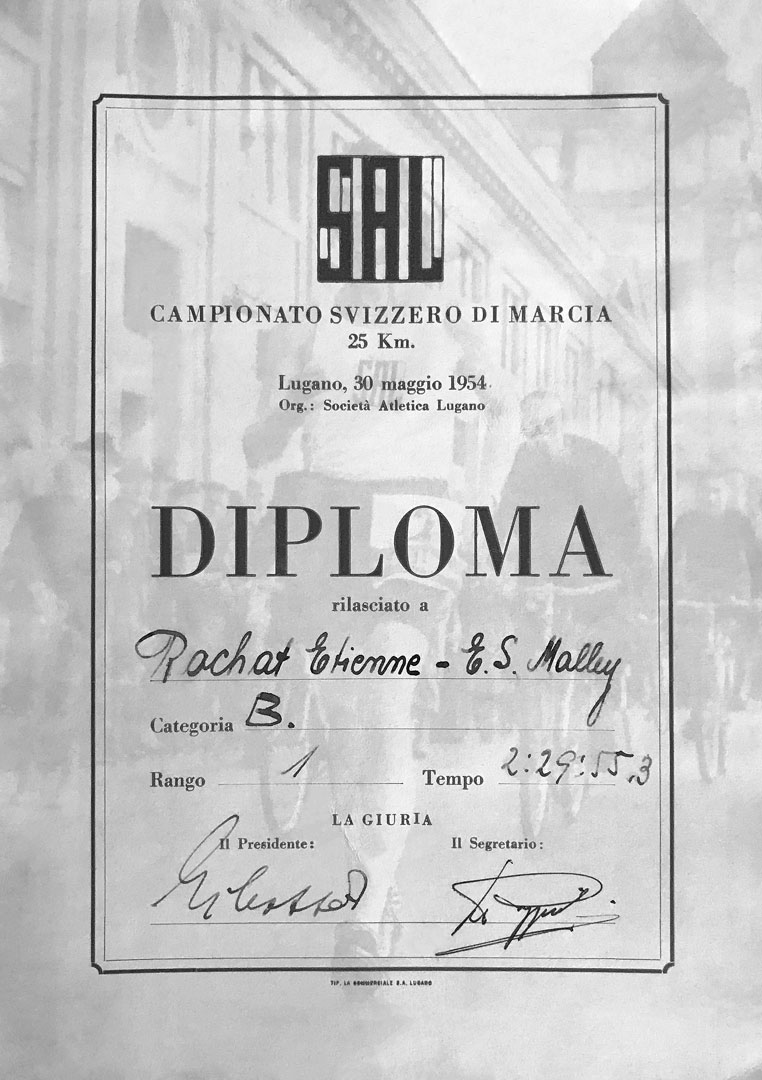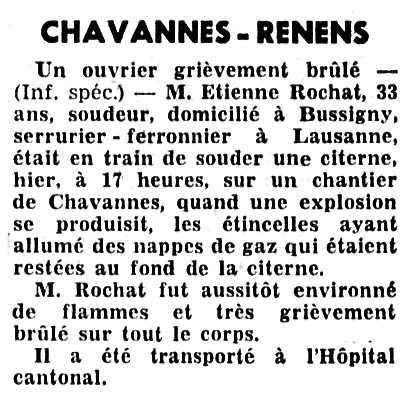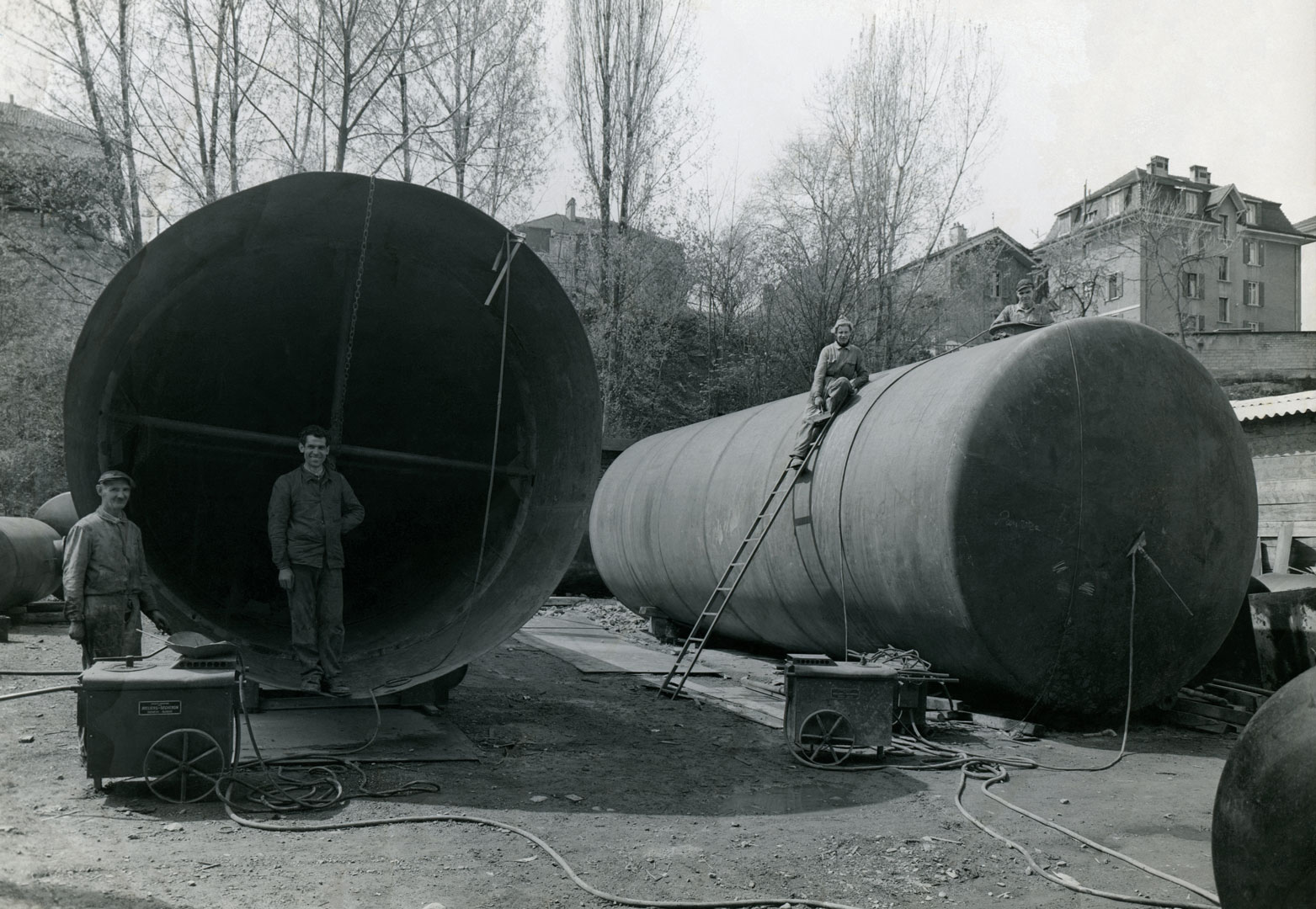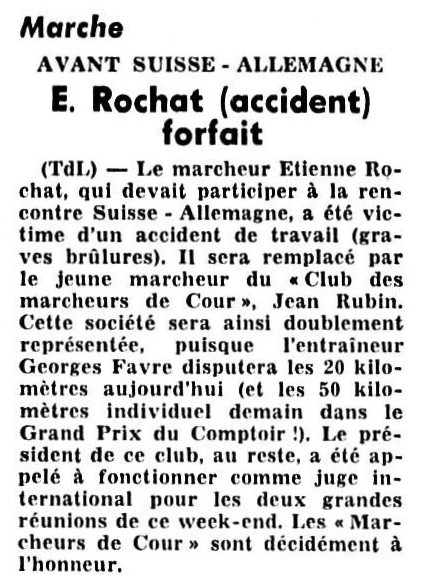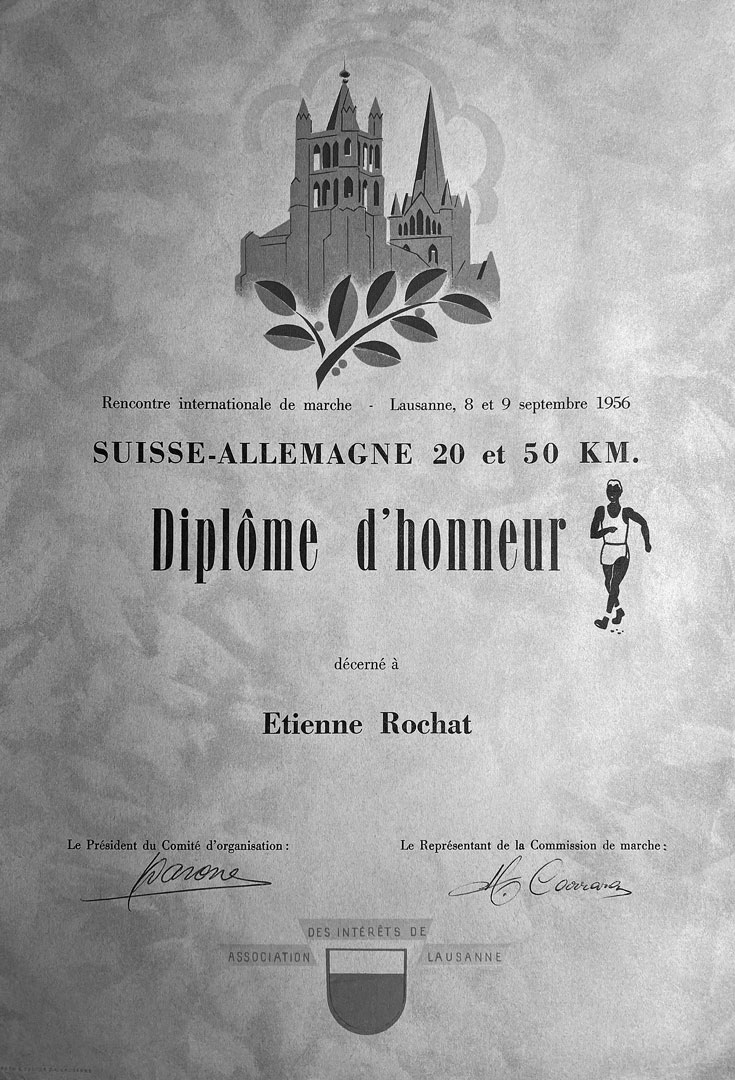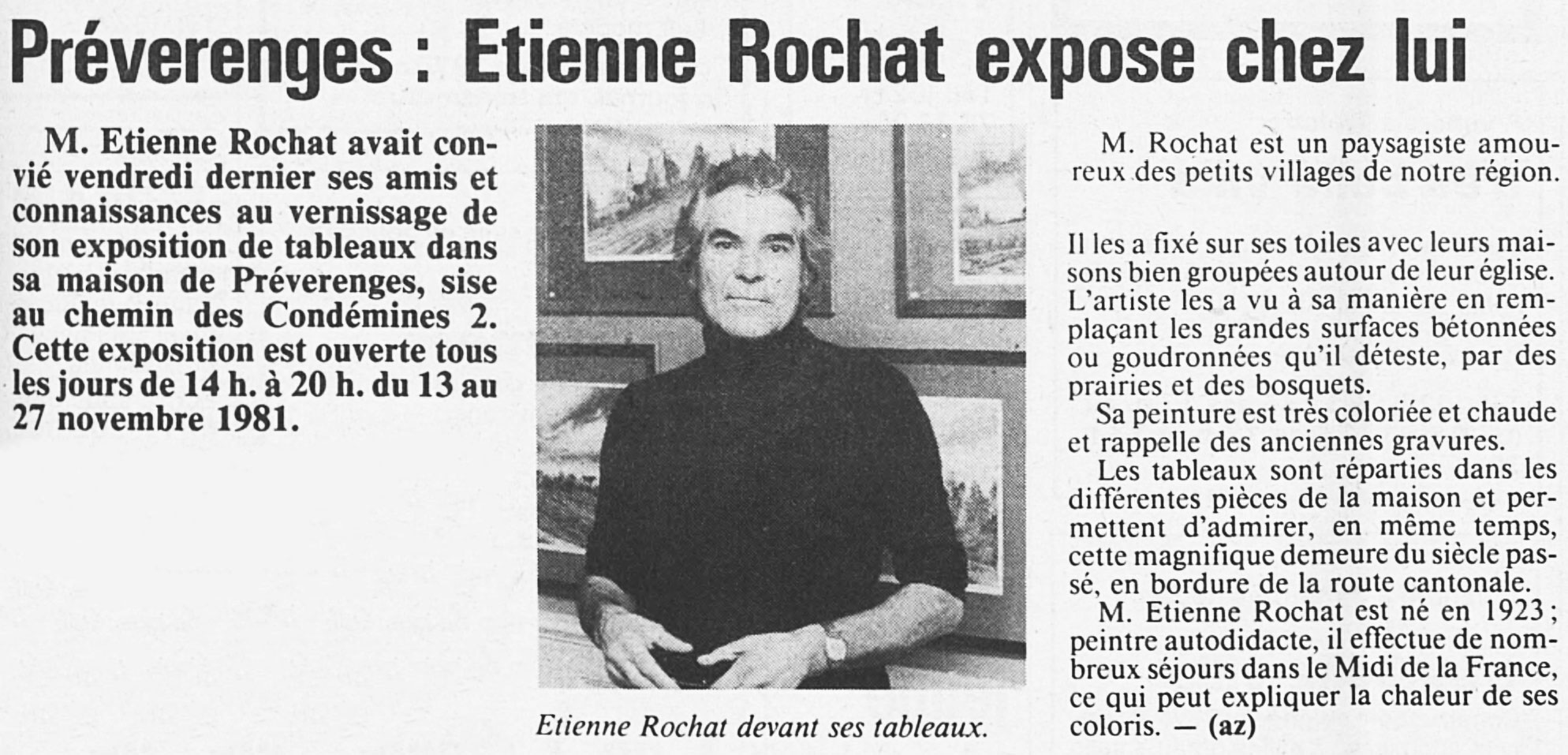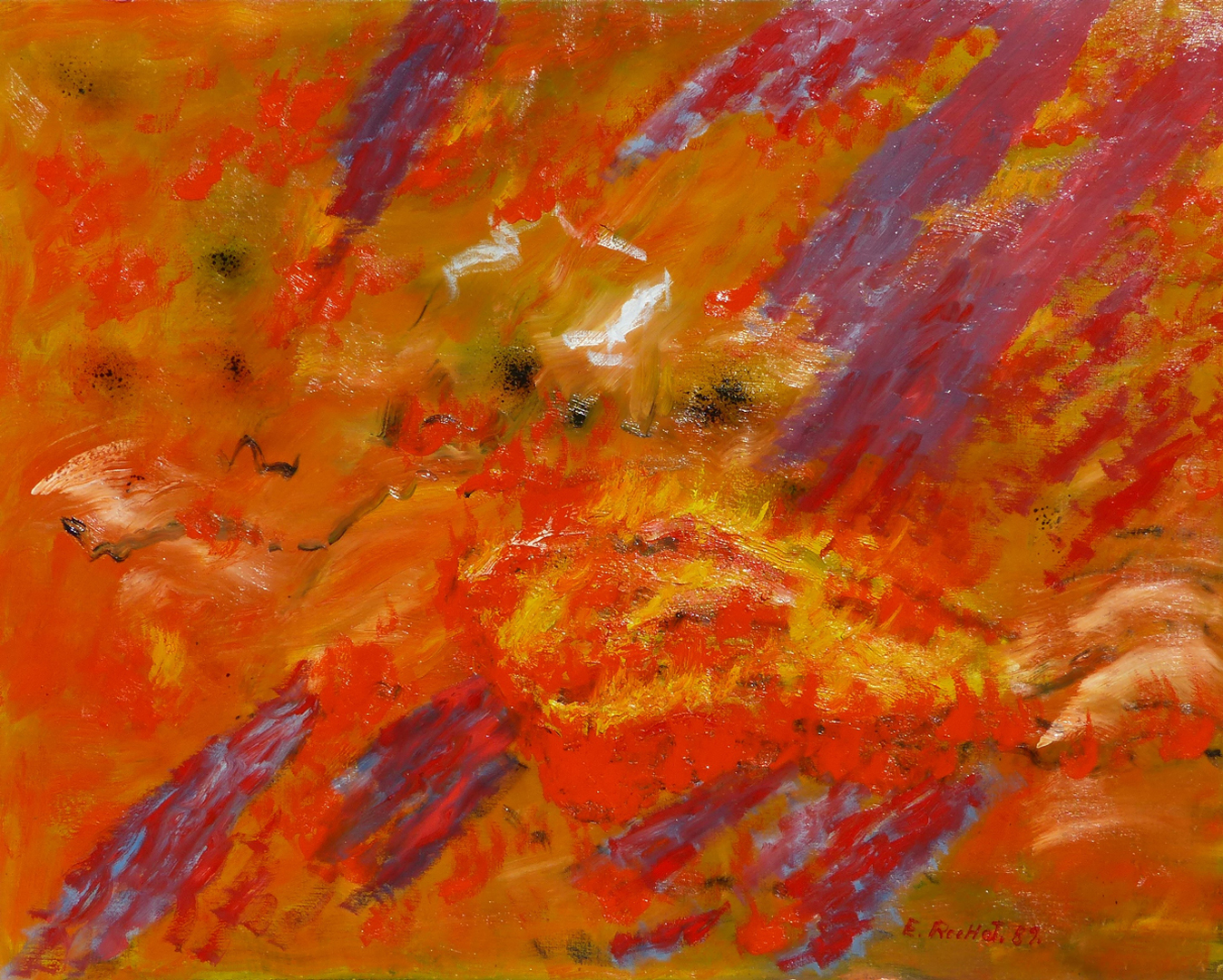BIOGRAPHY
Rochat’s interest in painting started in the late 1940s, a period during which he was working in underground mines
Etienne Rochat (b. 1923, Belmont-sur-Yverdon; d. 1997, La Sarraz, Switzerland) was a self-taught painter, native of the Canton de Vaud in Switzerland. The fourteenth and youngest child of a modest family, he started work at a very young age, holding many jobs including tanner, locksmith and miner.
After the war, Rochat lived with his wife and two children in the mining region of Val de Travers near Neuchâtel. He became friends with local artists Marius Vaucher and Charles Burgat who initiated his interest in painting. Soon afterwards, while working in underground asphalt mines, he began painting. But due to economic hardship, he struggled to acquire the necessary tools and material to progress in this field.
The mindset of an athlete
In May 1952, after almost five years working as miner, Rochat and his family left the Jura Mountains and moved to Lausanne on the shores of Lake Geneva. There, the cultural environment allowed him to pursue his artistic ambitions and he spent his free time visiting galleries and museums, learning about painters and developing his artistic skills.
At that time, Rochat was also an accomplished athlete participating in racewalking competitions at a national level. The physical and mental rigour with which he proved his athletic prowess also helped him to progress as an artist by persevering in his ambition to become a recognized painter, by pushing the boundaries of his own initial artistic limits and by confidently challenging those of figurative art.
Victim of a tragic accident
On September 5th, 1956, while working on a construction site at Chavannes-près-Renens in the suburbs of Lausanne, the tank in which Rochat was welding exploded.
Saved by a fellow worker who dragged him from the flames, he was taken to the nearest Hospital for emergency care. With severe burns on his entire body, he came close to dying.
The birth of an artist
As a result, on September 8th, 1956, the press announces his official withdrawal from an upcoming international 50 km racewalking competition between Switzerland and Germany. To pay tribute and to support Rochat in this tragic event that put an end to his sporting career, the Racewalking Committee and the City of Lausanne awarded him with a Certificate of Merit.
After multiple skin grafts and a rehabilitation program, Rochat slowly recovers and even regained his manual dexterity. Nevertheless, this ordeal fundamentally changed his outlook and his desire to devote himself to painting prevailed.
Tempting life as a full-time artist
In the 1960s, following his accident, Rochat left the urban life in order to devote himself to painting and opened his workshop on the shores of Lake Neuchâtel. Deeply inspired by this region, he produced some of the major works from his figurative period.
Nevertheless, he did not manage to live exclusively from his paintings and decided in the mid-70s to move to the south of France where life was less expensive. There, he studied the light, and in particular the sky and its contrasts, all of which became essential elements to be found in his upcoming project of Vaud Countryside.
Artistic change
At the end of the 1980s, Rochat began an entirely new artistic project. Grown as an artist, he broke free from the limits of classical representation and developed his artistic language moving away from figurative art.
At first through the thematic of space and later through that of the brushstroke, Rochat’s intensity in both form and colour of his paintings from this period conveys strong emotions, not to mention a need to express them without predefined limits.

